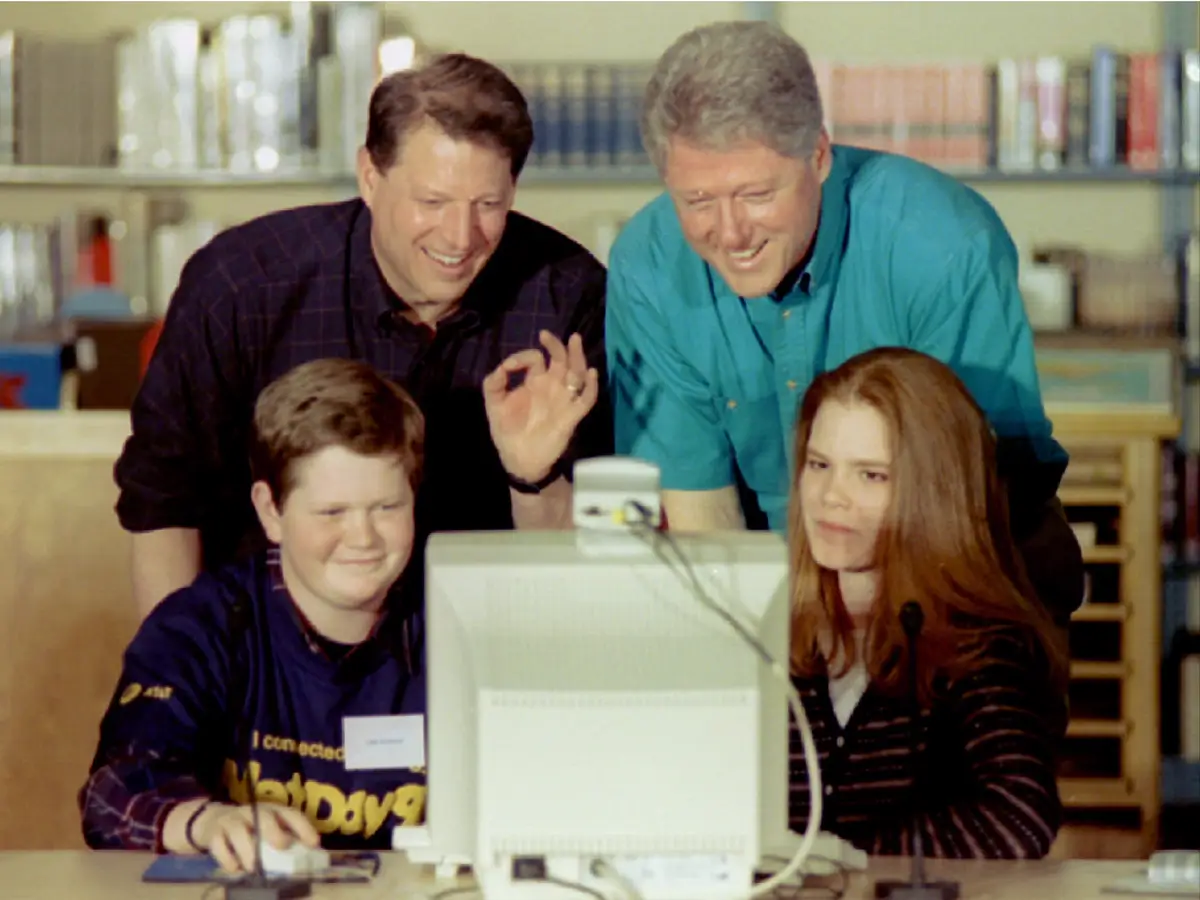When Always on Internet Changed Everything.
One of the more interesting
things about older computer systems is their lack of 24/7 internet
access. When you sat in front of your computer, it was to do
something. Play a game, write a letter, balance your checkbook.
Yes you could mess around and kill time, but for the most part,
you were doing something.
When Windows 95 came out, many users already
had some experience with dial up, either from AOL, Compuserve and
Prodigy, or from a PPP/SLIP dial-up ISP. Windows 95 and Mac OS 7
made it easier to connect to these services, but the machines were
usually used offline.
“Going online” was just another specific task. Check email, go to
a chat room, download some files, etc. It was a task like any
other program you would run back then. Many services charged by
the hour, as did many phone companies, so “dicking around” online
wasn’t really a thing. It took time, effort, and had a cost
associated with it. (seriously, some services used to charge $4-$5
an hour to use them.)
Modems got faster, and more people wanted to
get online. This led to the first big change, service providers
swapped over to monthly payments. Going online was more leisurely
now. There was no pressure to get right to what you wanted to do.
You could hang out in chat rooms. Download a bigger file. Or poke
around websites and kill time. There was still the issue with the
phones though. Most homes had a shared phone line, so this
probably took place after 9pm, when people were more than likely
not to call. Most of my friends and I knew how to disable the
speaker on the modem so you didn’t wake anyone up.
In 1998 my family got to be early adopters of
“always on” broadband. Qwest DSL 256 kbps up and down. We had 2
machines that were networked to the DSL modem, so 2 people could
surf the web at the same time!
Now you could waste time browsing web pages.
Download what you wanted, the file size didn’t matter. You could
just leave your computer on and wait. IRC, AOL Instant Messenger
and ICQ were always running, so you could chat with people when
you wanted.
For me, this was when the Internet went from
“interesting, part of the future” to “where things were going”.
The computer was no longer a tool to perform specific tasks
(games, email, web browsing, warez, etc.) but another connection
to the world. As useful as the phone, TV, or radio. We take it for
granted how events play out in real time on web applications like
Twitter or Facebook, but back in 1998 that wasn’t something that
happened for everyday consumers. Major events would get
broadcasted live to our TV sets and radios, but these were big
events. The fall of the Soviet Union, the LA Riots, the Oklahoma
City bombing. But smaller events, either regional, or not as
‘exciting’ to watch events you would either hear about on the 6pm
news, or read the next day in the newspaper. 24/7 internet changed
that.
The big change for me was when I wanted to know
the score of a random Trailblazer game. Before you would have had
to wait for the news to come on, and get to the sports section
(usually at the end of the broadcast). Instead I just went to
espn.com and found it. (Scores
here) I didn’t have to wait for the modem to connect. Just
open Netscape, point it to the site, and there was the information
you wanted. No waiting. Multiplayer games like Quake and Team
Fortress became full time obsessions for me.
This rapid change really threw people for a
loop. I spent a lot of time from 99 to 2004 teaching family
friends how to use their computer in the new environment. One of
my neighbors was an old telephone engineer who had a hard time
adapting to having the internet on all the time. She built her own
computers back in the 70s , but after retiring, keeping up got
hard for her to do. Once she wrapped her head around the idea that
she could access information whenever she wanted, it changed her
life.
24/7 internet lead to a lot of improvements in
our life. Most shopping can be done online. Napster and file
sharing changed how we consumed music and films. Modern life has
been shaped by it. It has changed things as much as cars, air
planes, and container ships.
And that is what was and still is really
interesting to me. These rapid changes in tech. The change first
comes slowly, but then when enough momentum is gathered, the
change goes real fast. Around 2004-2006 when broadband took over,
it was finished.
Links
https://www.thoughtco.com/the-invention-of-television-1992531
https://gta.boardhost.com/viewtopic.php?pid=40276
https://www.speedguide.net/articles/the-history-of-dsl-internet-access-1414
https://en.wikipedia.org/wiki/MPlayer.com
https://www.ign.com/articles/1999/02/25/team-fortress-classic

